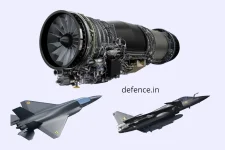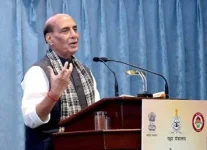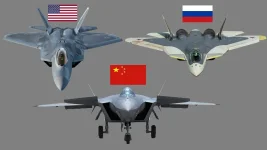- Views: 3K
- Replies: 12

India's ambitious Advanced Medium Combat Aircraft (AMCA) program is facing a critical juncture in its development, particularly concerning the choice of engine for the Mk2 variant.
While the Defence Research and Development Organisation (DRDO) aspires to equip the AMCA Mk2 with a 6th-generation engine, achieving this goal presents significant technological and financial challenges.
A senior official from GE Aerospace India, shed light on these complexities. The official revealed that DRDO desires an engine with capabilities similar to GE's XA100 adaptive cycle engine, a cutting-edge technology currently undergoing advanced testing.
The XA100, a key component of the U.S. Air Force's Next Generation Adaptive Propulsion (NGAP) initiative, represents a significant leap in jet engine technology. Adaptive cycle engines offer dramatic improvements in efficiency, range, and thermal management compared to conventional engines, along with significantly enhanced acceleration. GE is among the few companies to have completed advanced testing on this revolutionary engine, placing it at the forefront of propulsion innovation.
In contrast, other major aerospace companies like Rolls-Royce and Safran are still in the early stages of developing adaptive cycle engines. According to the GE official, these companies are estimated to be 10-15 years behind GE in this technology. This technological lead gives GE a strategic advantage in discussions with India regarding potential engine co-development.
While GE has expressed willingness to collaborate with India on a new engine for the AMCA program, the company's offer does not include adaptive cycle technology due to the significant financial and technological investment required. GE has proposed co-developing a 110-130 kN engine that would meet India's immediate requirements for the AMCA, but it would lack the advanced features of an adaptive cycle engine that DRDO may be seeking for future-proofing the platform.
DRDO Chairman Dr. Samir V. Kamat recently emphasized the need for a 6th-generation engine for the AMCA and potential future programs, including a true 6th-generation fighter. While not explicitly stating the need for adaptive cycle technology, his remarks suggest India is looking to align its propulsion capabilities with emerging global standards.
Adaptive cycle engines are highly desirable for their ability to optimize performance across various operational scenarios, providing enhanced fuel efficiency during cruising and maximum thrust during combat. However, the high costs and technological hurdles associated with their development present significant challenges for India.
GE Aerospace India's offer to co-develop a non-adaptive engine appears to be a pragmatic approach, balancing India's immediate needs with the realities of development timelines and budgets. However, the official acknowledged that adaptive cycle engines represent the ideal solution for India's long-term ambitions, offering unparalleled performance and future compatibility.



